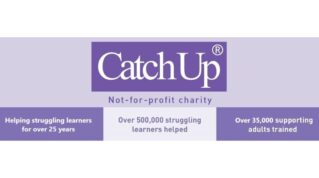The £10 million initiative from the Department for Education is preparing to welcome its fourth cohort of Partner schools onto the programme in April 2022. So, how has Behaviour Hubs been received by the sector? And how are the schools and multi-academy trusts (MATs) already on the programme benefiting from this free and fully-funded opportunity?
The Behaviour Hubs programme is based on DfE “behaviour tsar” Tom Bennett’s 2017 independent review on behaviour in schools. ‘Creating a culture: a review of behaviour management in schools’ summarised that good behaviour, routines and structures in school are all key factors in determining a pupil’s school experience.
Behaviour Hubs supports schools and MATs by helping them to create calm, orderly environments where pupils can learn – and teachers can teach. The programme matches Partner schools that want and need to improve pupil behaviour with a Lead school that has an exemplary track record in behaviour culture.
Lead schools provide bespoke support which helps schools to diagnose issues and implement new behaviour approaches. This school-to-school support is complemented by a series of online training modules and resources developed by a team of expert behaviour advisers headed by Tom Bennett, in addition to open days and networking events which allow schools to observe and share good behaviour practices. Applications for Partner schools to join the April 2022 cohort are currently open.
Before welcoming its first cohort of Partner schools onto the programme in April 2021, Behaviour Hubs came under scrutiny from various stakeholders in the sector. Many believe that teachers should be the main proponents to drive change and improvements within their schools, as experts of teaching in their specific contexts. But Behaviour Hubs has never been against this principle. In fact, this is the goal of the programme.
All schools that are welcomed onto the Behaviour Hubs programme are self-referred. This means that senior leadership teams apply to join the programme because they have the will and capacity to make the changes needed to their behaviour culture. With three different streams available, each offering varying levels of support and independent learning, teachers can merge their own expertise with the core principles outlined in the programme.
A ‘one size doesn’t fit all’ programme
The Behaviour Hubs programme isn’t intended to make schools start again from the ground up. Instead, Lead schools help to diagnose behavioural issues and build a steady roadmap for internal behaviour improvements based around the parts of a school’s existing behaviour culture that already work.
Understanding the context and unique challenges of each Partner school is essential to the programme’s success. This means that while specific behaviour approaches, such as an outright ban of mobile phones, may be appropriate in certain contexts, this isn’t an expectation of the programme since it operates under the ethos that ‘one size doesn’t fit all’.
“Exemplary behaviour culture is underpinned by a school’s values and the children, families and communities it serves,” Emma Bradshaw OBE commented, Executive Principal at The Limes College / Alternative Learning Trust, a pupil referral unit and Lead school on the Behaviour Hubs programme. “It is consistent and flexible, has strong practices, routines, and can flex to meet the needs of the most vulnerable. We need to know what is behind the behaviour, and we can adapt our responses to it and stay consistent.”
Since the Behaviour Hubs programme lasts for one year in most cases, it is imperative that senior leaders are supported to develop the tools to not only implement change – but sustain it once the programme has ended. Consistency is a fundamental ingredient in creating an effective behaviour culture, and the programme helps schools adopt a whole-school approach that empowers staff at all levels to actively promote this culture.
As such, Behaviour Hubs is as much a benefit for teachers as it is for their pupils; tackling classroom disruption facilitates higher-quality teaching, which improves pupil outcomes, boosts teacher wellbeing and ultimately helps schools with staff retention.
Supporting Covid recovery in schools
When the Behaviour Hubs programme was first announced in 2019, the context for making improvements to pupil behaviour within schools was vastly different to today. Though schools and teachers were quick to adapt their learning materials to support remote learning due to the coronavirus pandemic in March 2020, the inevitable disruption to pupils’ learning has had a clear and demonstrable effect on their attainment, wellbeing and behaviour.
Ofsted noted in its ‘Education recovery in schools: autumn 2021’ report that the behaviour of new primary and secondary school cohorts had been particularly impacted due to Covid-related disruption. Year 7 pupils “struggled with the behaviour expectations of their new school” and even year 8 pupils were still adjusting and settling into the secondary school environment.
The design and structure of the Behaviour Hubs programme has meant it is well-placed to help schools develop strategies that are relevant to improving behaviour culture in the current period of lockdown recovery. The strength of the programme lies in the network created within the behaviour hubs themselves.
Lead schools with exemplary behaviour practices host termly open days which allow Partner schools to observe a variety of approaches to sustaining effective behaviour cultures in action. Regular networking events provide a forum for schools to openly discuss the challenges they are facing, as well as share any solutions they have been developing. This idea exchange underpins the essence of Behaviour Hubs and ensures that the programme remains relevant regardless of the context.

In light of the additional pressures teachers are facing to implement Covid recovery strategies, the Behaviour Hubs programme has extended its Partner school eligibility, so schools with a ‘Good’, ‘Requires improvement’ or ‘Inadequate’ overall Ofsted rating are now all eligible to apply.
This change acknowledges the fact that some schools have not had an Ofsted inspection in many years. Furthermore, existing behaviour strategies that worked in schools previously may now be proving difficult to sustain in the current context. The most effective behaviour cultures are those that accept that changes occur incrementally, and that behaviour policies must be reviewed regularly to ensure they remain relevant. By broadening the Partner school criteria, the Behaviour Hubs programme can help schools implement a stable and self-sustaining culture.
Creating a behaviour culture across all provisions
Behaviour Hubs aims to be an inclusive programme that works across all phases and provisions, as well as in areas of varying levels of deprivation. The programme has welcomed several exemplary special and alternative provision (AP) Lead schools, which support other special and AP schools on a one-to-one basis.
Special and AP schools benefit from all the same networking opportunities as other school provisions within their hub, while receiving support from a Lead school with an intimate and in-depth knowledge of improving behaviour in schools that match their own provision.
In addition to the core training modules, which are essential to the success of building sustainable behaviour practices, the Behaviour Hubs programme offers specialist training modules that focus exclusively on behaviour management for pupils with SEND, as well as best practices in AP and special schools.
As a result, Behaviour Hubs becomes a reflection of the diversity across schools – and pupils – in England, and a number of Lead schools on the programme operate in challenging and disadvantaged contexts. Given the school-to-school approach that unifies Partner schools on the programme, teachers are able to share their own expertise at Behaviour Hubs networking events and through its online forums, and learn from each other.
Empowering schools to make lasting changes
While community-based support is integral to the Behaviour Hubs offer, specialist training has been developed and is delivered by a team of seven expert behaviour advisers appointed by DfE and led by Tom Bennett.
Collectively, the team has extensive experience within special schools, alternative provision, primary and secondary school settings, as well as within MAT executive teams. This allows the Behaviour Hubs programme to be as broad-reaching as possible, operating seamlessly and helping schools across provision types.
“Every member of the school staff stands to gain from being part of a behaviour hub,” explained Jayne Lowe, Director of Bright Green Learning and behaviour adviser on the programme. “Staff will have opportunities to access professional development on how to actively promote and contribute to good behaviour culture. They will be supported by school leaders to implement social norms and systems which are understood by all stakeholders including students and families.”
Jayne Lowe went on to explain how the work of the behaviour advisers empowers schools to make lasting changes:
“Sustainability has been built into programme design. The training and induction that leaders receive provide them with a secure evidence base and set of principles to guide the construction of behaviour culture and implementation of change.
The ongoing coaching provided by Lead schools builds confidence and develops the skills leaders need in order to diagnose issues, develop informed responses, drive change and continually review performance. Tooling leaders up in this way allows them to take ownership throughout the programme and go on sustaining good behaviour culture beyond the life of the programme.”
In addition to the team of behaviour advisers supporting the programme, Education Development Trust was appointed as the delivery centre of Behaviour Hubs. As the delivery centre, Education Development Trust’s responsibilities include the provision of logistical and administrative support, organisation of training, and acting as the central point of contact for Partner and Lead schools on the programme as well as for stakeholders and general enquiries.
Education Development Trust is an international education charity whose work demonstrates a deep commitment to improving education. With the core values of excellence, integrity, accountability, collaboration and inclusion at the heart of its operations, alongside its extensive experience managing professional development programmes for teachers and senior leaders, Education Development Trust is well-placed to deliver the Behaviour Hubs programme.
Anna Searle, Education Services Director at Education Development Trust, commented: “Our mission to transform lives through excellent education underpins all the programmes that we manage and deliver – and Behaviour Hubs is no exception. The ethos of the Behaviour Hubs programme to generate lasting cultural change through a school-tailored approach is directly aligned with our organisation’s purpose of delivering sustainable solutions to improve pupil outcomes.”
“Many of our exceptional people have taught in classrooms and been involved in leadership roles in schools across the country. They have the greatest empathy for the challenges that teachers are currently facing to sustain an effective behaviour culture. Through working closely with schoolteachers and leaders, Education Development Trust delivers the Behaviour Hubs programme with the utmost respect for the way schools operate, the wellbeing of pupils and teachers alike, and each school’s individual context.”
Supporting pupils to learn, grow and flourish
How to address behaviour in schools has proven to be a passionate subject within the sector – not least because poor classroom behaviour has such a detrimental effect on a pupil’s ability to learn. Tackling low-level disruption in classrooms is at the forefront of educational policy to ensure all pupils have the best chance to learn, grow and flourish in schools. And vehicles for change, such as the Behaviour Hubs programme, are able to help schools implement the sustainable changes to behaviour culture that they hope to achieve.

Tom Bennett, lead behaviour adviser on the programme, reinforced this position: “Good behaviour underpins everything we’re trying to achieve in schools – safety, learning, and flourishing. Lead schools work with Partner schools in order to help them become, not carbon copies of some imagined perfect institution, but the best versions of themselves. We want schools to evolve into the culture they want to become.”
“The aim is to move the needle on behaviour at a national level, by helping to create a critical mass of fantastic role models for every school in the UK to see what is possible and how to achieve it.”
The Behaviour Hubs programme is currently accepting applications for the April 2022 cohort of Partner schools. Visit www.behaviourhubs.co.uk for more information and how to apply.
















Your thoughts